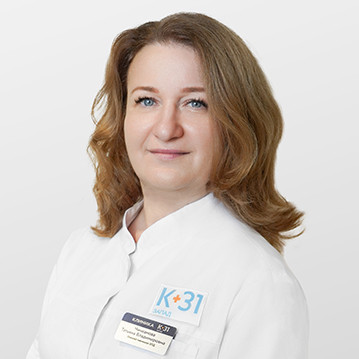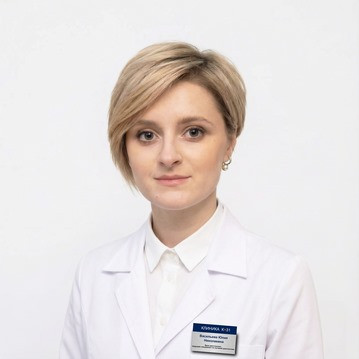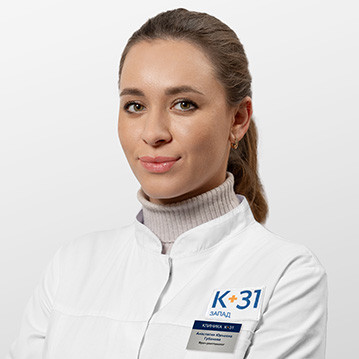Magnetic resonance imaging (MRI) of the pituitary gland is the most accurate method of imaging a small endocrine gland, located in the brain. The study is carried out to confirm a number of diagnoses in endocrinology and neurology.
Contact the medical clinic "K+31" to undergo an MRI of the pituitary gland at the best price in Moscow. We have a premium SIGNA™ Architect AIR™ Edition installed, which makes the diagnosis as informative, fast and safe as possible for the patient.
Principle and objectives of the study
The essence of MRI is to scan the head with electromagnetic waves that interact with hydrogen and cause magnetic resonance. These physical phenomena are captured by the apparatus and transformed into a three-dimensional image of the structures under study. Magnetic resonance imaging is the most informative for visualizing fluid-rich tissues, which include all parts of the brain.
The pituitary gland (pituitary gland) is the central endocrine organ that produces regulatory hormones. These substances stimulate the work of other endocrine glands (thyroid, adrenal glands, gonads), maintaining a normal metabolism and the correct course of all biochemical processes. Normally, in women, the height of the pituitary gland is 3-8 mm, the width is 10-17 mm, and the volume does not exceed 0.4 ml.
The disease occurs with metabolic disorders and poses a serious threat to health, therefore require highly informative diagnostics. MRI of the pituitary gland is done to confirm or exclude such pathologies:
- Micro- and macroadenomas.
- Craniopharyngioma.
- Pituitary cysts.
- Congenital malformations of the Turkish saddle.
- Hypophysitis (inflammatory process in the organ).
- Damage to the optic chiasm.
Magnetic resonance imaging is also actively used in neurosurgery before operations near the Turkish saddle. The surgeon needs to examine in detail the structures of this zone in order to choose the right intervention tactics and avoid complications
Indications for a diagnostic procedure
MR-tomography is a highly specialized method of neuroimaging, which is carried out only in the direction of the attending physician (neurologist, endocrinologist, ophthalmologist). The doctor will recommend that the patient undergo an MRI of the pituitary gland if there are such complaints and symptoms:
- Double vision and other visual disturbances that cannot be explained by typical ophthalmic diseases.
- Long-term headaches of unknown etiology.
- Sudden enlargement of facial features, hands and feet (acromegaly).
- Nipple secretion due to hyperprolactinemia in women and men.
- Decreased libido and infertility in women.
- Erectile dysfunction and infertility in men.
- Abnormal increase or decrease in the level of hormones that are produced in the pituitary gland.
If a doctor suspects a neurological disease, they may first prescribe MRI of the brain - the pituitary gland is also visualized in the pictures, but less clearly than during a targeted study. Then, according to indications, an additional scan of the pituitary gland is performed.
Contraindications
Magnetic resonance imaging of the brain is considered relatively safe, however, like any method in medicine, it has several limitations. The list of absolute contraindications for pituitary MRI without contrast includes:
- Implanted pacemaker, cardioverter-defibrillator, metal prosthetic heart valves.
- Cochlear implant
- Steel fixation structures in bones, some types of joint prostheses.
- Metal splinters in soft tissue associated with penetrating wounds.
- Clips on cerebral vessels.
- Sewn in nerve stimulators.
Pregnancy is a relative contraindication. If the diagnosis cannot be confirmed in any other way, it is possible to perform magnetic resonance imaging in agreement with the gynecologist.
If a patient needs a contrast-enhanced MRI of the pituitary gland in Moscow, the price of which will be higher, the list of restrictions also increases. Such a study is prohibited to perform in case of intolerance to contrast or polyvalent drug allergy, renal failure (with GFR less than 30 ml / min), severe course of bronchial asthma. Diagnosis will need to be deferred if the patient has had another contrast-enhanced study within the previous 36 hours.


























